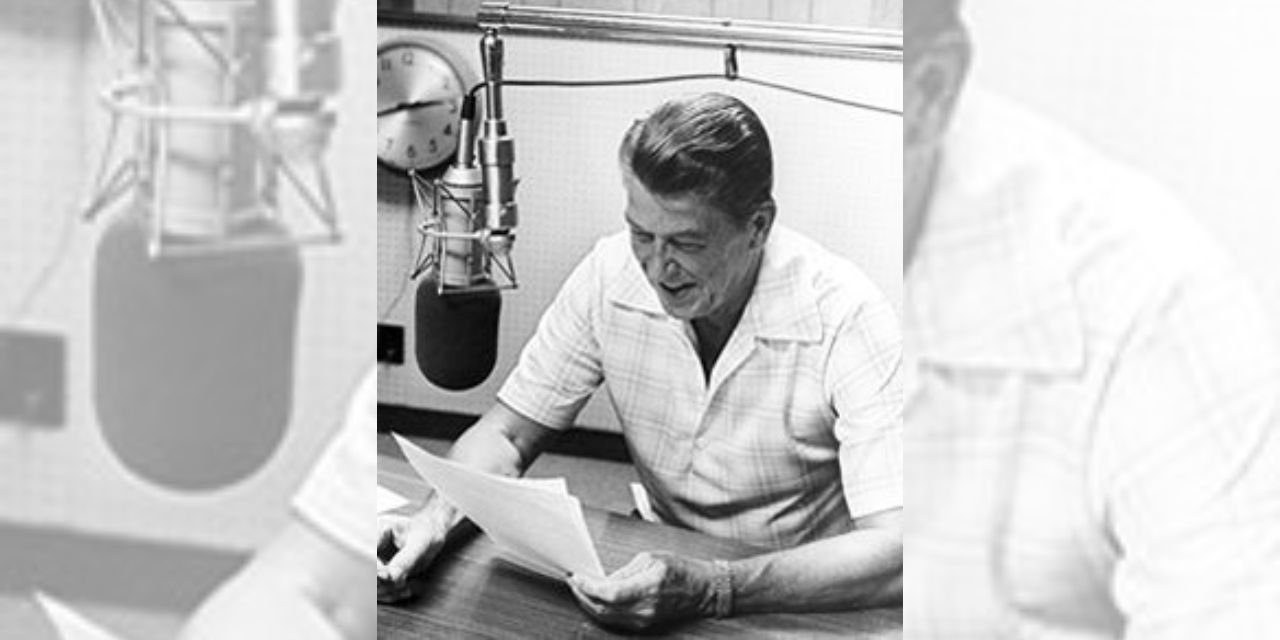Ronald Reagan’s Best Advice to Presidential Candidates

Shortly after President Gerald Ford edged out Ronald Reagan for the Republican nomination in 1976, the former movie star and retired California governor found himself at a dinner party seated next to Marion Jorgensen, a dear friend.
“It must be hard, losing like that,” Jorgensen said empathetically. People of a certain age might recall that in the first GOP presidential contest post-Watergate, the campaign came down to the final days of the Republican National Convention in Kansas City. Ford edged out Reagan, but only by the slimmest of margins.
“Marion, you don’t understand,” Governor Reagan replied. “I am going to be president of the United States. I am not giving up.”
We know that tenacity spirited the “Great Communicator” to the Oval Office in January of 1981, but there was something else that Mr. Reagan possessed during those four years that some considered to be pivotal and critical to his success.
Ronald Reagan took his unfiltered message both daily and directly to the American people.
Between 1975 and 1979, the nation’s future fortieth president personally wrote and recorded 1,027 radio commentaries on a wide range of topics – everything from his convictions regarding religious freedom, his support for the sanctity of life, his defense of liberty, the dangers of socialism, and the benefits of marriage and family.
Crisscrossing the country, Mr. Reagan wrote each of the broadcasts in his own hand on yellow legal pads. Neither strategists nor consultants told him what he should talk about. Nobody provided him talking points. There was no speechwriter. Instead, the future chief executive spoke heart-to-heart with fifty-million people via the radio every week.
What many may not know is that the famed CBS newsman Walter Cronkite offered President Reagan an opportunity to deliver a similar commentary on television, but the Gipper turned him down. First, he knew he wouldn’t be able to fully control placement of the segment on such a left-leaning program. Second, he thought viewers would more easily tire of seeing him rather than hearing him so regularly. An old radio broadcaster, he was familiar with the latter medium’s intimacy and ease.
Some might argue that today’s social media provides a similar venue for reaching the American people in an unfiltered way. There would be some truth to this fact – but there is also something to be said for a more thoughtful and extended discourse on a wide range of subjects.
Focus on the Family founder Dr. James Dobson used to say to me, especially as I worked at honing the writing craft, “Paul, if you want to really know what you think about, you need to sit down and try and write about it.”
Ronald Reagan wasn’t communicating in 140-character messages. He wasn’t posting clever memes. Sure, he had advisors and help, but he also read, studied, wrote, and spoke. He took his case and his convictions directly to the American people, and he visited with them wherever they were, whether in their cars, their kitchens, or their offices.
Generally speaking, candidates who make a personal connection directly with voters fare better than those who don’t. In his farewell address to the American people in January of 1989, President Reagan discussed the “Great Communicator” nickname that he won, but suggested, “I never thought it was my style or the words I used that made a difference.” Instead, he said, “It was the content … they came from the heart of a great nation.”
Photo Credit: Hoover Institution
ABOUT THE AUTHOR
Paul J. Batura is a writer and vice president of communications for Focus on the Family. He’s authored numerous books including “Chosen for Greatness: How Adoption Changes the World,” “Good Day! The Paul Harvey Story” and “Mentored by the King: Arnold Palmer's Success Lessons for Golf, Business, and Life.” Paul can be reached via email: Paul.Batura@fotf.org or Twitter @PaulBatura
Related Posts

The Refreshing Patriotism of Olympian Jasmine Jones
February 13, 2026

Colorado Committee Kills ‘Children Are Not for Sale Bill’
February 13, 2026

Washington School District Buries Female Wrestler’s Sexual Assault Complaint Against Male Opponent
February 12, 2026

“Who Am I?”: James Van Der Beek’s Final Answer
February 12, 2026
